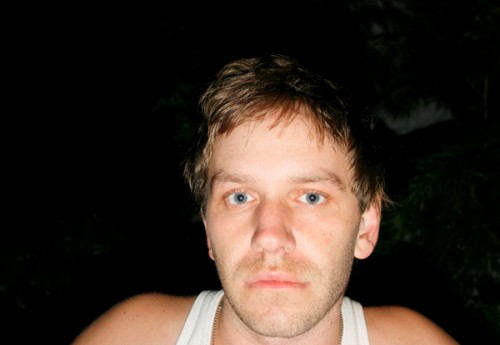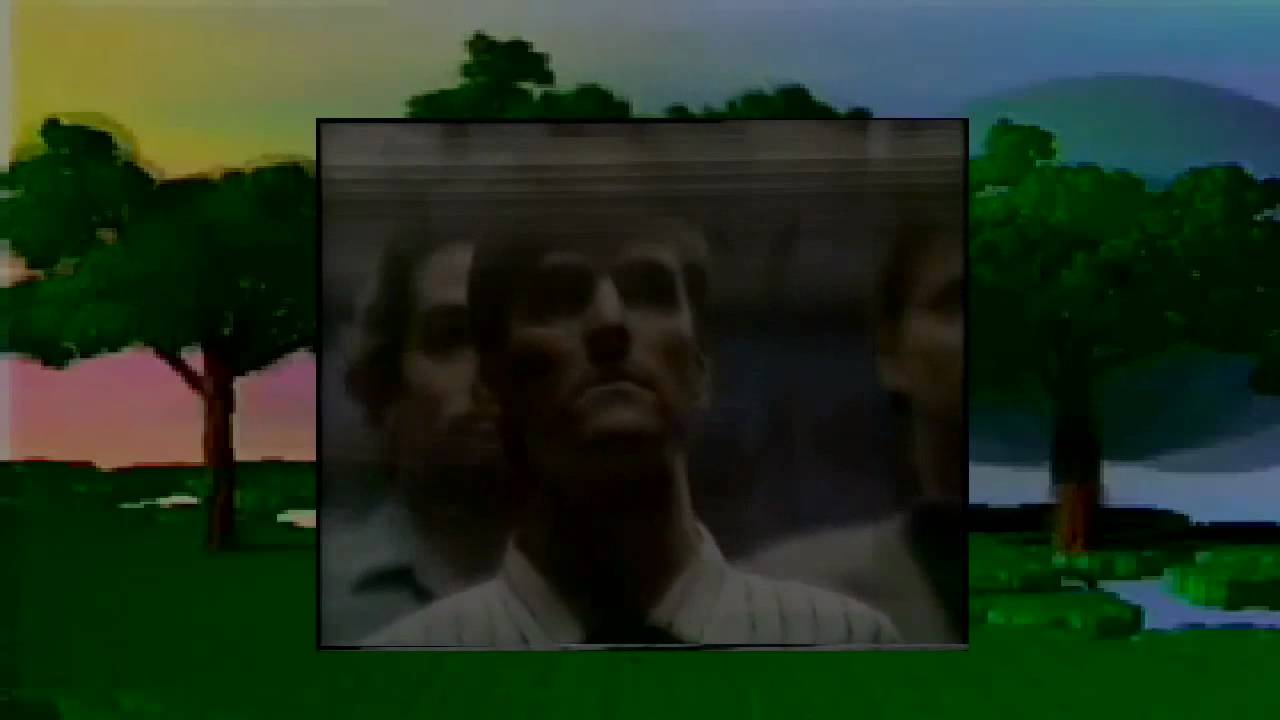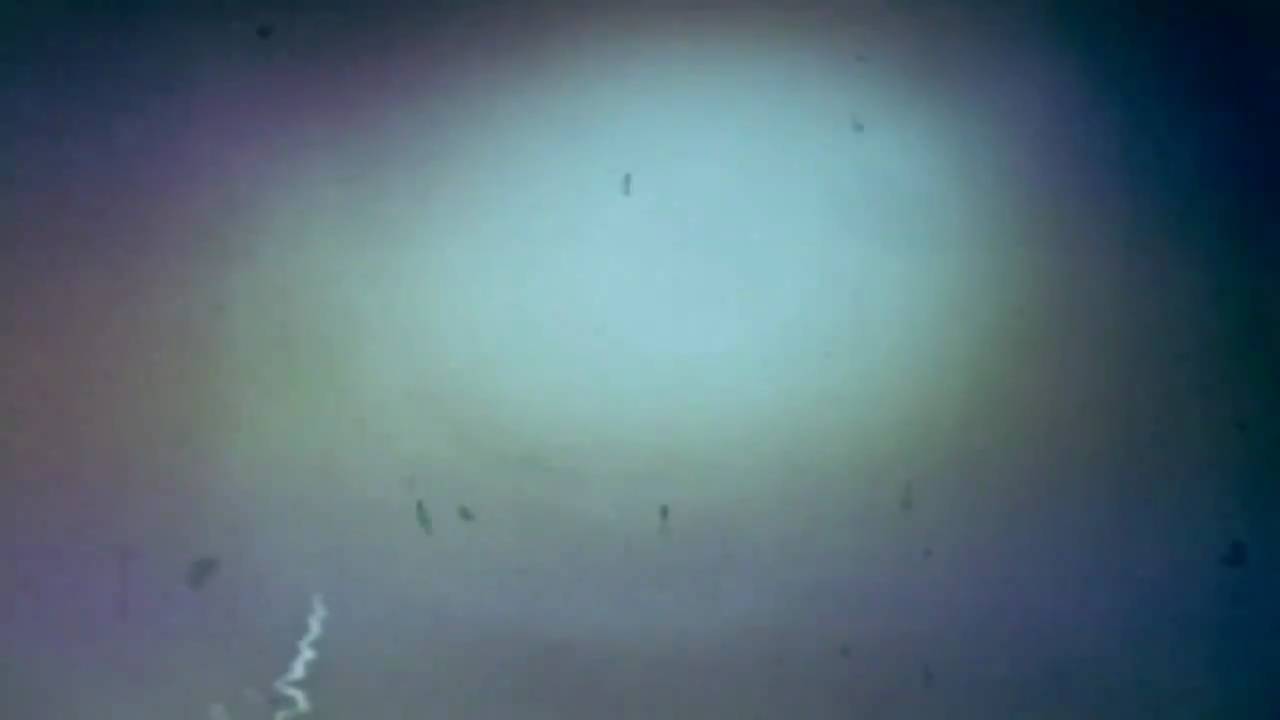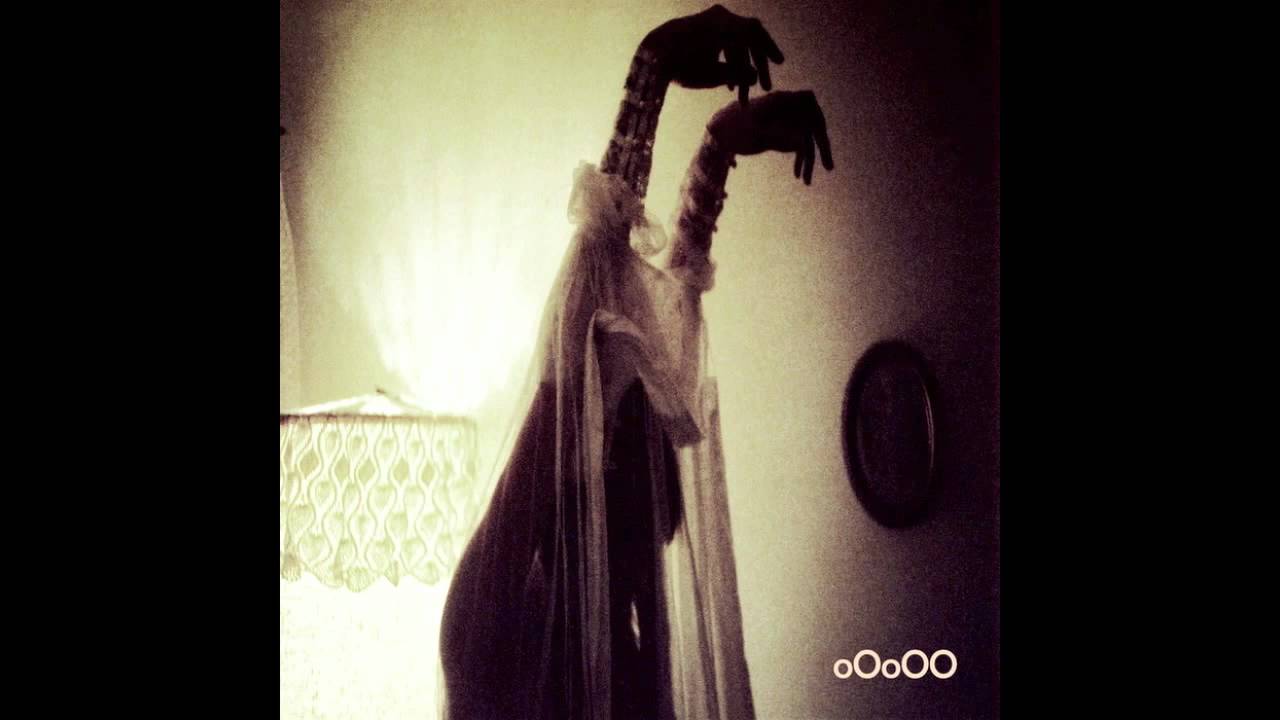Classic and contemporary culture has been littered with faceless characters from Edvard Munch to Burial. Recently a slew of bands that seem intent on deeming internet searches useless have – intentionally or not – overtaken our bandwidth. ///▲▲▲\\, who after some research seem to be found under the name Void (and now seemingly also under the moniker Horse MacGyver), and Gr†LLGR†LL, with tracks names such as ‘if u cAn dR3Am’, are two examples of artists seemingly rapt with hiding away from exposure. Many say this has all become rather trite – but whether it’s a ploy to fight the internet age of the music business that it’s increasingly apparent we find ourselves in, or just another way to embrace it by giving sites something else to fill column space with, is open to debate.
It is perhaps quite fitting, then, that the aforementioned Munch’s The Scream – one of the most famous pieces of modern figurative art to contain a faceless character – is widely regarded as a masterpiece of neurosis. The main aesthetic that connects the artists that have been loosely assembled under the term drag is the use of a slow-motion gothic or neurotic noir across their differing musical planes.
Whether all those tarred with the drag brush that is being drawn across the world’s web pages like it or not, the term encapsulates what was last year’s underground music success story, with the realisation of the promise shown by the likes of Salem et al on record. It has also thrown up some of the strongest visual art to be connected to music in some years, seemingly inspiring a new wave of gothic inspired avant-garde references. The 20jazzfunkgreats blog even went as far as trying to assimilate peaks in witchcraft enrolment with the release of Steve Moore material- all tongue in cheek I’m sure, but a strong indicator of the mood within the music he had found himself listening to.
Late last year Tri Angle – responsible for some of the strongest releases of 2010 in EPs from oOoOO and Balam Acab – tried to add a well-known face (in the form of one Lindsay Lohan) to a collection of its related artists with their free download ‘Let Me Shine For You’. Daniel Lopatin is obviously now more well known as a character, following the success of Oneohtrix Point Never releases Rifts and Returnal. But much conjecture seemed to surround oOoOO in anticipation of what might follow such a strong debut. Aside from a steady flow of remixes from the young San Franciscan, though – and a mix tape for these very pages – all has gone somewhat quiet on the oOoOO front. The Quietus spoke to Christopher Dexter Greenspan, the face behind the elusive oOoOO, to find out more ahead of his premier UK voyage.
So you’re headed over to the UK soon to do some shows…
Christopher Dexter Greenspan: Well, these London dates are all just DJ sets. People say my DJ sets are a lot different than my own music. But I don’t know – I feel like I just play my influences when I DJ. So, lots of southern rap, and stranger pop music tracks that I’m in to.
Have you always been big into hip hop? A lot of your music has exceedingly urban undertones.
CDG: Yeah, definitely. When I was younger I pretty much listened to punkish stuff and rap. Rap first and foremost, though. It was the first music I was into that was electronic, using drum machines and synthesizers. From that, I got into more electronic music proper.
For those out there not overly familiar with it, can you define Southern hip hop? Is there a particular aesthetic?
CDG: I guess it’s actually a pretty broad term, Southern hip hop. But I was really into Memphis rap from the late 90s and early 2000s. Like Three 6 Mafia and Project Pat. And there’s lots of good stuff coming out of Atlanta like Gucci [Mane], [Young] Jeezy and Soulja Boy. I don’t know. It’s all a lot slower and largely synth based, rather than sample based like 90s NY hip hop was. The Atlanta sound to me is kind of a commercialized, the polished Memphis sound, but that’s cool.
You also mentioned stranger pop music. If we play your tunes on 45 instead of 33, or maybe in reverse, do we get a pretty straight up Billboard hit? It often seems to be hidden in there somewhere.
CDG: Sometimes it’s just about changing up the speed, slowing it down. Christina Aguilera’s last album sounds real good 20 percent slower. But Britney’s Black Out is strange enough as it is. I’m really surprised it doesn’t have more of a fan base among "serious" electronic music people. It’s really an incredible record.
So would you be more likely to settle down to an evening of Britney and Mean Girls than Sun Araw and The Seventh Seal?
CDG: Much more likely, yes. But I listen to a lot of indie stuff, too.
Speaking of indie, there’s pretty a killer guitar solo hidden on ‘Seawww’. Are you a big guitar player?
Chris: I was when I was in junior high. I almost never pick up a guitar now, though. For some reason I just felt like that solo fit in there.
You lay down some pretty interesting drum patterns for the aesthetic of music you produce. Would you say they are one of the main focuses of the song when you’re writing?
CDG: No, not really. They’re always important, but it depends on the song. Sometimes I start with a drum pattern and everything else gets written to accentuate it. But more often, it’s a synth line or a bit of vocals.
On the subject of synths, you’re from San Francisco. Your music isn’t a brand I would assimilate with the usual sun-fried sound that emanates from the area.
CDG: Yeah, San Francisco is really big on garage rock right now, and rock/punk/guitar music in general. It’s a weird place to be for me musically. People in New York and London – even people in LA – expressed an interest in what I’m doing before anyone in San Francisco. Even now, I get asked to play shows and do stuff way more often in New York than here. I did a DJ set in Chicago a few weeks ago and it got more press than I’ve got over the last year in San Francisco.
You mentioned New York and London. Tri Angle is based between the two. They’re hammering out more top-notch material at the minute than most imprints can ever hope to. What do you think it is that they’re doing right?
CDG: I can’t really speak for anyone but myself, but my sense is that – at least on some level – it seems like most of the artists releasing with Tri Angle are ignoring, or consciously trying to get rid of, the distinction between mainstream and underground music. I mean, ultimately the music is "underground" I guess, but I’m interested in borrowing from more commercial sounds. The Lindsay Lohan mix that Tri Angle released is a really good example of what it does right. The overlap between mainstream and indie culture is something a lot of people are really interested in right now. But there aren’t a lot of people specifically working to bring that area into clear focus.
Have you had any word from the lady in question about it?
CDG: No, as far as I know she hasn’t heard it. I think she’s been really preoccupied lately.
Are you interested in getting it more into the mainstream, or just experimenting with blurring the boundaries?
CDG: I’d like to see the distinction become irrelevant. Mainstream culture is really just a late adoption of what was underground some years back. Some things get watered down, but new things get added and something new is created. I don’t mean to imply mainstream stuff is simpler, or not as good. It just seems like as cultural changes speed up faster and faster, there is going to inevitably be a greater blurring between the two. As mainstream culture gets faster at appropriating hipness, it will probably be picking up things that are still relevant to underground circles.
If there was anything that seems to be relevant at the moment though, it’s the kind of thing Tri Angle are doing, right?
CDG: Yeah, definitely. It will be interesting to see how things play out.
You did a split single with White Ring. There certainly seems to be a strong sense of community building within the drag circle?
CDG: Yeah, the split with White Ring was really cool. I like their music and I like them personally. But I don’t think I’d say community. And I don’t identify as a ‘drag’ artist in the slightest. I don’t even know what that genre is supposed to be defined by.
Are you friends with anyone else you may want to do a split or joint venture with? There already seems to be chance for some quite interesting ethereal super groups out there…
CDG: As far as music goes, I very much need to be in control of everything. I don’t know how good of a collaborator I would be. But I’d be open to the possibility. There are actually a couple in the works right now, but I probably shouldn’t say anything about them, because they might not work out in the end.
These shows coming up will be your first UK appearance as far as I can see. What was the thinking behind them being DJ sets rather than live shows?
CDG: I was supposed to come to the UK in October to do some live shows, but decided in the end that I wasn’t ready. I’m still not. The thing about being a poor collaborator is that it’s really hard for me to find people I’m satisfied with for a live set, and I don’t want to do one unless I find the right vocalist. I have some leads right now and have been working on some new tracks with someone, but it’s too early to say how that will end up.
What happened to the girl you used on EP?
CDG: My friend Lisa has done all of the vocals so far, but she’s really busy with other stuff so can’t do live shows, really.
There’s something ethereally beautiful about the EP. Is that something you would agree with? Or are you just trying to scare the living crap out of us?
CDG: I think the two can overlap quite a bit. I try not to think too much about this question; I feel like if I think about it too much or try and articulate it, it will negatively affect my ability to make music. I just know that there is a sound I’m trying to make and when I stumble on it while fucking around, I recognize it and go with it.
Your web page bears a cross, Salem’s record cover has the same, whilst Balam Acabs seems to be a church window. Is their any particular relevance? I’ve read a lot where people are trying to assimilate the music to witchcraft, and even Satanism…
CDG: Not for me. I just think that’s a really great photograph; probably more because of the cheap 90s camera time-stamp in the lower right hand corner than for the cross. Or maybe it’s the juxtaposing of the cheap time stamp with the big cross that’s powerful about it, I don’t know. I’m certainly not religious or spiritual.
So, for the record, are you, or have you ever been a goth?
CDG: No, my goth roots go no deeper than The Cure. Are they even goth? I don’t even think I could name a real goth band. Are Skinny Puppy goth? I’ve heard of them. If there is anything goth about my music it’s probably a result of listening to Three 6 Mafia and Pet Shop Boys at the same time.
I saw The Cure near the top of a ‘best goth records’ list the other day, so I’d guess they have to be. The list was, however, topped by The Smiths, so I question its validity.
CDG: OK yeah, well if The Smiths and The Cure are goth, then I guess my teen years were pretty goth.
No black eye make up by the sounds of it. Just a healthy dose of miserabilist pop.
CDG: Yeah, definitely more my style.
You’ve been heavy on the remix duty recently. With the EP released last year, have the remixes been to bridge the gap whilst you’ve been busy in the studio working on a full length?
CDG: Kind of. That was the idea, but I work really slowly and I tend to put as much time into the remixes as originals, so they ended up taking away a lot of time from working on my own stuff. But I really like doing them. I was really happy to do the Marina and The Diamonds one – I love her. But yeah, I’m going to have to lay off the remixes now because I just can’t do my own stuff at the same time.





